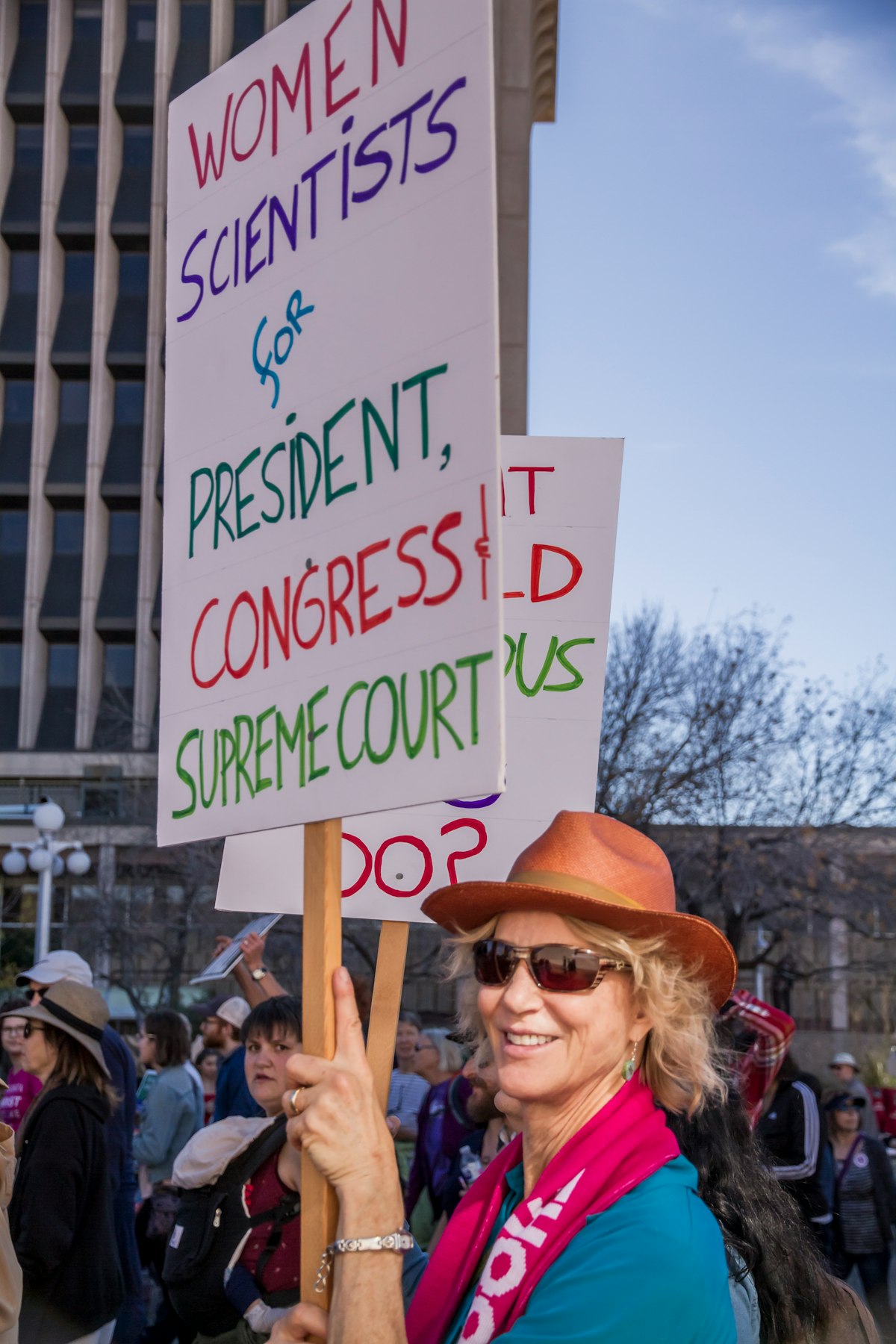The Women's March on Washington will impact the understanding of feminist activism
Joe Biden's administration integrated minority youth; it is a historic group that breaks down barriers because of its diversity. Social and digital networks will play a major role.

The Women's March in Washington celebrates its first five years this year, and although there is no specific date for the 2022 mobilization, it seems to indicate that it will be focused on intersectionality, that is, the fight against racism, sexism, social injustice and, in particular, environmental rights, says Daniela Villegas Mercado, from UNAM's Center for Research and Gender Studies (CIEG).
The specialist in feminist activism points out that the current U.S. administration has integrated 48 percent women and 52 percent African-American, Latina, and other minorities into its cabinet, which, according to analysts, is a historical group that breaks down barriers due to its diversity, which "we were not used to seeing and in whose speeches, whether we agree or not, there is a debate on those groups that generally had not been represented". Currently, within U.S. feminism there is a moment of criticism towards this other white collective action and it invites women who have situations of greater racial or class privilege to open up to other types of presence within these social movements.
Daniela Villegas highlights that U.S. President Joe Biden tries to position himself before the world as a Democratic politician; however, within his country, he is not well accepted and lacks popularity. In November 2021 he had a disapproval level of 41 percent, according to the EFE news agency. "I think he has a little more sympathy abroad than in his own country, this limits him a lot to advance on some women's rights issues."
In the area of abortion, which was the focus of the 2021 march (held in October), in response to the law passed in Texas that prohibits the termination of pregnancy after six weeks of gestation, he points out that each state in that nation has its legislation and is handled according to its rules. However, Biden promised to defend their rights and pointed out that the almost total prohibition of abortion in that state violates the U.S. Constitution.
The approval of the law goes completely against their human rights in all its dimensions, not only because of the level of economic precariousness of a sector and because some of the centers where abortion is practiced have been closed and others are far away, but also because the number of weeks in which it can be practiced legally has been reduced.
She warns that this could generate more risks because many Americans will continue to have abortions, but in a situation of illegality and greater vulnerability, something that also affects Mexican women who live in entities close to the border between both countries, "because there are those who live in the north of the country and have a visa, and used to travel to Texas to terminate their pregnancies; now they will no longer be able to do so due to the regulations adopted in that state of the American Union".
By 2022, due to the COVID-19 health crisis, it is expected that social-digital networks will play a key role in this mobilization, through Facebook, Twitter, Instagram, etc., as they will carry out their protests through hashtags, photographs, and memes, among other resources. Although there is still no date set for the next march in the United States or a specific theme, "I think it will still focus on this discussion of race, diversity and, above all, on the issue of the environment and the search for an interweaving between various political groups of these".
For Villegas Mercado, one repercussion of this movement in the U.S. could be in the understanding of feminist activism in the world. "We should think that now there is a lot of talk about intersectionality, a term coined in the 1990s by the African-American Kimberlé Crenshaw, which has spread around the world and which intersects class, race, ethnicity and many other elements in a person, not only a woman but also an indigenous person, a lesbian, etc.".
The university expert recalls that this trend emerged on January 21, 2017. "It all started when an American lawyer, Teresa Shook, who lived in Hawaii, once she found out that Donald Trump had been elected president of the United States generated a Facebook page to call for a protest against that process, and so did Bob Bland, an activist from another entity of the American Union, both mobilizations were combined and they realized that the participants were mostly Anglo-Saxon".
Because of this, they considered inviting activists from different groups: African-American, Latinas, Muslims, etc., so they invited African-American Tamika D. Mallory, Chicana Carmen Perez, and Linda Sarsour, an American of Palestinian origin. "They would be co-chairs of this march." The main speech of that first mobilization was to establish an agenda for people who were outside the speech of then-President Donald Trump: gay rights, racial equality, immigration reform for the benefit of the undocumented, among other issues.
The primary motif of the subsequent march (2018) concerned the inclusion of those Native American Indians, those with disabilities, transgender, Latinas, and those fighting for environmental safeguards, a series of elements where class, race, ethnicity, and religion came together. However, the mobilization has been splintered by ideological issues, in addition to the criticism that it became more of a product than activism aimed at fighting for fundamental guarantees.




